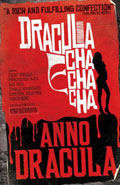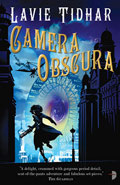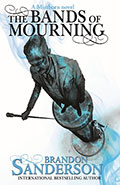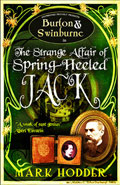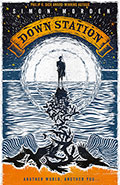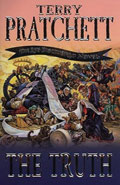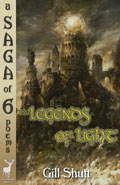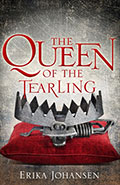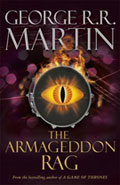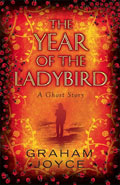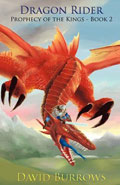When The Heavens Fall
By Marc Turner
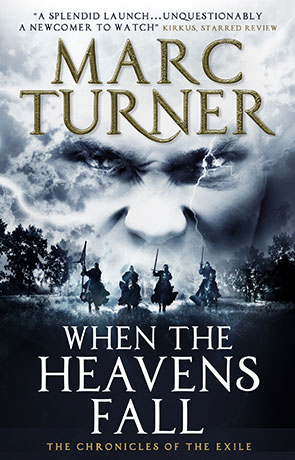
- When The Heavens Fall
-
Author: Marc Turner
- Series: Chronicle of the Exile
-
Publisher: Titan Books
- ISBN: 9781783297573
- Published: 22 May 2015
- Pages: 558
- Format reviewed: Paperback
- Review date: 04/05/2016
- Language: English
- Age Range: N/A
An epic fantasy story that begins The Chronicles of the Exile, there is a lot to like about Turner’s first book in this series.
The beginning requires some perseverance. We are introduced to Luker Essendar and his former associate Gill. What follows is a very long exposition as discussion between the two characters ostensibly to establish the current political situation across ‘The Lands of The Exile’. This feels somewhat unnecessary. Gill is the dispatcher, sending the unwilling Luker on a quest to find the Book of Lost Souls, which has been stolen, and rescue his former master, Kanon. The use of this device is a bit too transparent.
The alternate perspective of Romany, the Spider priestess is considerably more interesting and handled with some lightness as the woman converses with her God about their own plans for the aforementioned Book. After this we’re introduced to Ebon Calidar, Prince of the Galitians and Parolla, a powerful fugitive with a fragile grip on inherited and dangerous magic.
Turner establishes these disparate perspectives well enough. We certainly get more of an idea of character from the female leads, Parolla and Romany and it is clear there is a long path for us to follow in resolving all the parts of the story.
Magic and deities feature heavily throughout When The Heavens Fall. There are some echoes of the Forgotten Realms Avatar trilogy in how the Gods work through their attendants and meddle in the affairs of mortals, albeit from their own strategic game board. Certainly, we get a sense of the removed enemy from Turner’s Lord of Death - Shroud as we encounter many of his minions and challengers, who project the power of God through their own gifts and efforts to challenge him.
In the best of the book we have a detailed and structured mythology with rebellious necromancer, Mayot Mencada raising thousands of the ancient dead and resurrecting the mysterious war between the Fangalar and the Vamilians. The source of their conflict is a mystery and Turner keeps this card close to his chest. There are some Eddings’ like issues of scale related to this, with the numbers mentioned stretching the bounds of realism, but this can be carefully ignored without too much trouble.
One of the more problematic elements of the story is Turner’s continual use of the phrase ‘death magic’. Whilst we are immersed in a chaotic war between necromancers, we are dragged through scene after scene after scene after scene of conflict as the four perspective characters converge on the story’s eventual resolution and this becomes very wearing. The action is skilfully written, but the repetition cannot be obscured by any amount of dexterous weaving. Romany’s story provides the only counter point, by adding an element of humorous gamesmanship, whilst Mottle the Air Mage steals every scene he is in.
Another issue lies in the triviality of dialogue. At times, the principles quip their way through adversity with an assortment of modern one liners belying the desperate struggle they are partaking in . Luke Essandar is particularly guilty of this. The character is portrayed as powerful and gritty, but comes across as difficult to like or care for, even when he overcomes betrayal and despair to win through.
At times there are stories hinted at which might prove more interesting than the one we follow. The Galitian siege feels like it might have been an incredible tale, just as the history between the Fangalar and the Vamilians intrigues all the more when the shade Tumbal reveals his own connection to their tragic fate.
When The Heaven’s Fall does establish a large canvas for suitably epic storytelling. The elements of mythology and the variety of characters demonstrates Turner’s vast imagination. He certainly shows tremendous skill in weaving together this disparate collection of questions to a cacophonous finish. Perhaps a shorter and more concentrated story would allow his him to focus, manage a more consistent story arc and leave behind some of the writing gymnastics needed to weave together this sprawling epic.
Written on 4th May 2016 by Allen Stroud .
